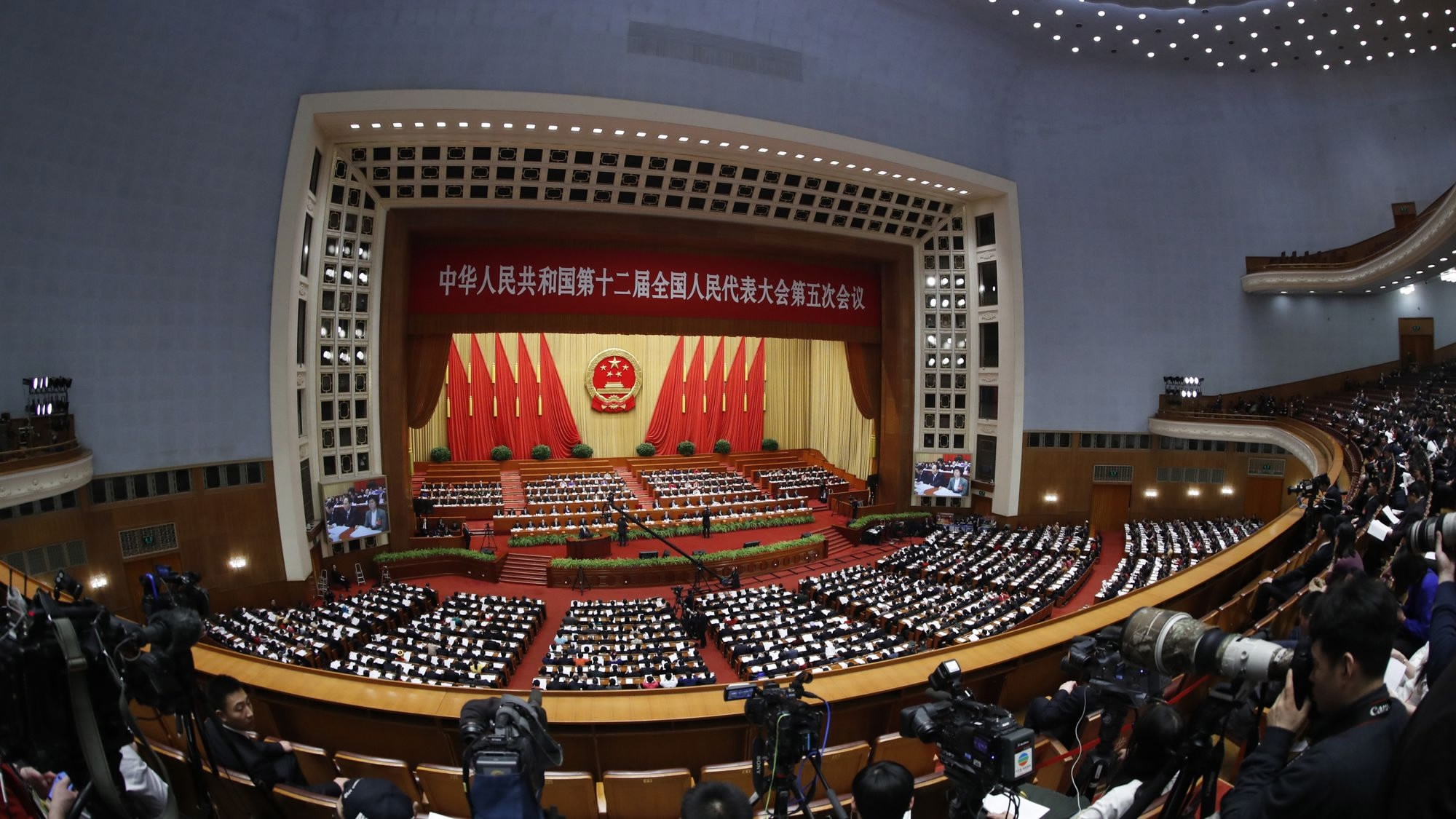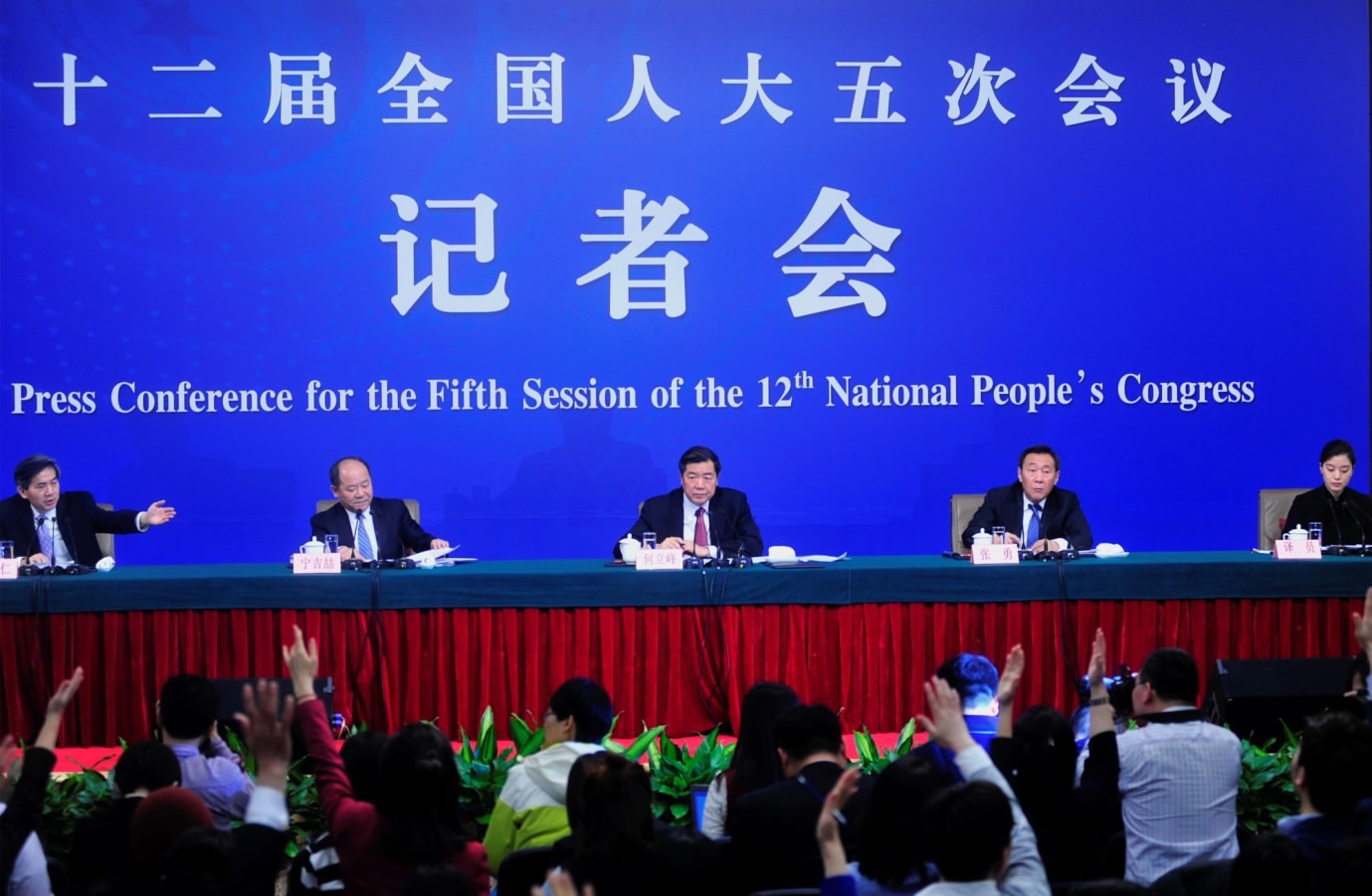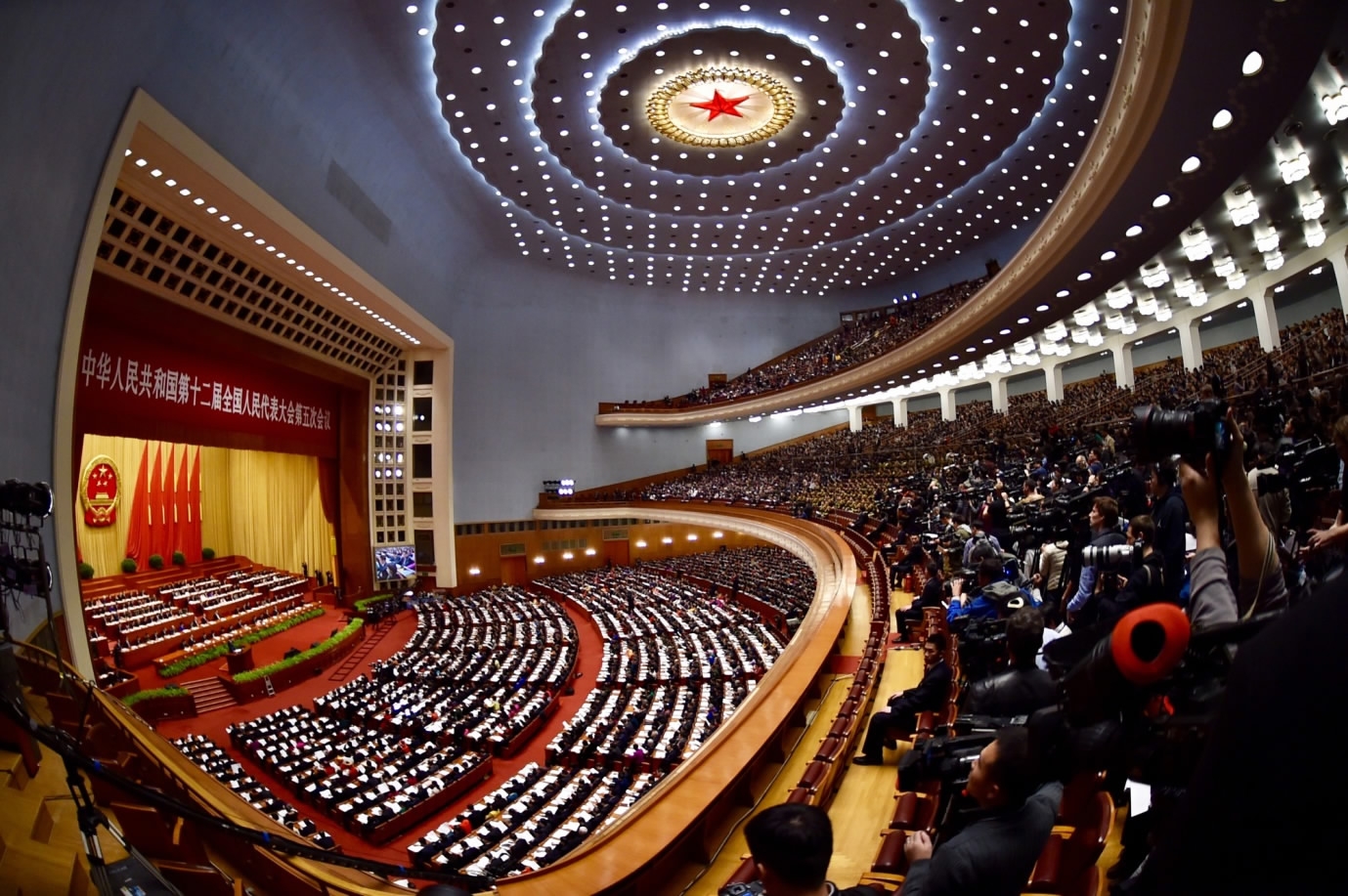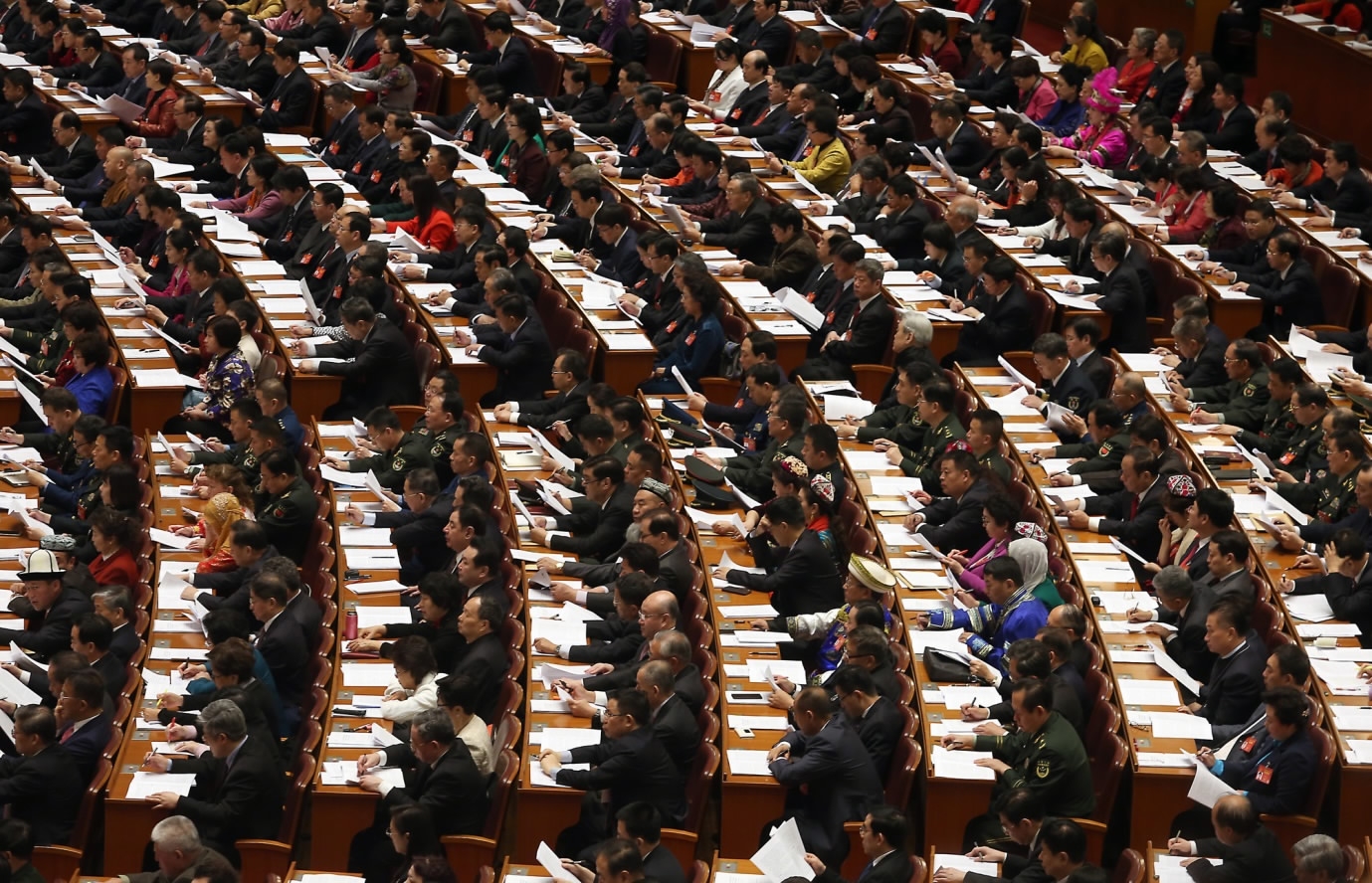
Politics
21:00, 08-Mar-2017
Kuhn’s view of the Two Sessions: How the National People’s Congress works
Updated
10:59, 28-Jun-2018

By CGTN's commentator Robert Lawrence Kuhn
China’s National People’s Congress (NPC) is the supreme organ of state power; it is authorized to pass laws and to help enforce them. The Chinese People’s Political Consultative Conference (CPPCC) provides consultation, participates in decision making, and exercises a kind of supervision. The two together, now holding their annual meetings, are nicknamed “Two Sessions” – and while they have been long derided as “rubber stamps,” ratifying in public what Party leaders have already decided in private, change is inexorable, driven by the sheer complexity of society and the sudden ubiquity of online information.

Press Conference for the Fifth Session of the 12th National People's Congress /CFP Photo
Press Conference for the Fifth Session of the 12th National People's Congress /CFP Photo
Why has the NPC been labeled a “rubber stamp”? For one, the NPC must “unswervingly adhere to the leadership” of the party. For another, the national legislature has never turned down a bill put to a final vote.
However, as its nearly 3,000 delegates meet in the Great Hall of the People, the NPC gives increasing voice to the Chinese people, representing how they feel. The dense crowds of Chinese reporters here, and the access they have to delegates, evinces a desire by China’s leaders to be more transparent. (It’s a small step, but the step is forward.) Moreover, not all NPC decisions are made unanimously and, what’s more, CPPCC members are becoming more outspoken (because many are leading professionals in their fields).

a scene of Great Hall of the People /CFP Photo
a scene of Great Hall of the People /CFP Photo
While NPC and CPPCC sessions are planned carefully, even scripted, they can be useful for discerning political priorities and economic expectations. Officials have used past meetings to send signals on important policy moves, such as the end of the one-child policy in 2016.
This year, all eyes are on the “General Provisions of the Civil Law.” It defines the very basic terms that will undergird civil law and it is a big first step toward a comprehensive civil law code for China. The core value of civil law is care for human beings, and its ultimate goal is to protect individual integrity, development, and freedom.

Deputies to the National People's Congress/CFP Photo
Deputies to the National People's Congress/CFP Photo
Like most things described with “Chinese characteristics,” Chinese interpretations of “individual rights” sometimes differ from those in the West, due to different political, cultural and religious conditions. Nonetheless, the deep meaning of the draft General Provisions of the Civil Law is that it advocates and specifies the protection of the legal rights of individuals and other civil entities in society, serving as the foundation guideline for enforcing current laws and regulations and for enacting future legislation supporting civil rights.
It is the duty of the NPC’s Law Committee to make sure all sides’ opinions are heard and considered fairly.
That the General Provisions of the Civil Law has taken an unusually long time, required multiple drafts, faced several rejections, and still has unresolved conflicts, is, to me, a growth spurt for Rule of Law in China. Contemporary issues are complicated, and facile answers can have unintended consequences. The more the NPC encourages debate, the more the NPC benefits society.
(Robert Lawrence Kuhn is a public intellectual, political and economics commentator, and international corporate strategist. He is the host of Closer to China with R.L. Kuhn on CGTN.)
11km

SITEMAP
Copyright © 2018 CGTN. Beijing ICP prepared NO.16065310-3
Copyright © 2018 CGTN. Beijing ICP prepared NO.16065310-3